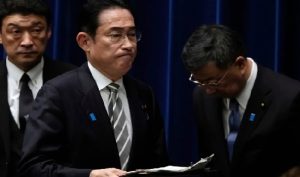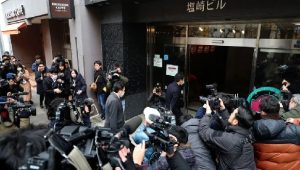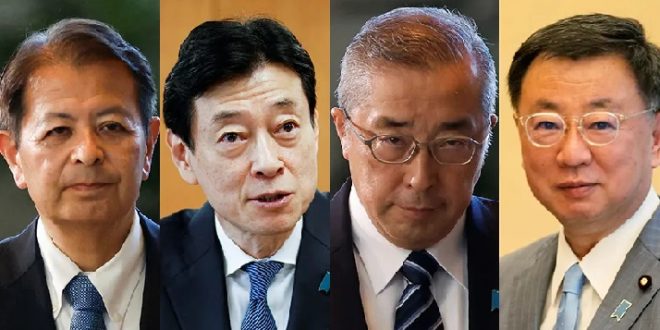23-12-2023
TOKYO: Japan is going through a “once in a generation” political crisis, analysts say, as the government fights to clean up its image in the face of a corruption scandal.
Four cabinet ministers from the long-term ruling party have resigned in the past fortnight, as Prime Minister Fumio Kishida fights to hang on.
 His approval ratings are down to 17%, the worst in over a decade.
His approval ratings are down to 17%, the worst in over a decade.
Public anger and outrage has boiled over on social media.
Some hope this could be a tipping point for reforms in governance. But others note it’s the Liberal Democratic Party (LDP) in the spotlight, the party that has ruled Japan almost continuously since 1955.
Its time in power has long been marked by similar scandals- one reason why analysts say voters in the leading Asian democracy are feeling disillusioned and cynical.
In recent months, media reports have emerged accusing LDP politicians of pocketing excess funds received at fundraisers.
Most of the allegations have been levelled at the powerful Abe faction, named after the former Prime Minister Shinzo Abe who was assassinated last year.
It’s the largest group in the ruling party with 99 lawmakers. Until recently, it also held some of the most critical positions in the cabinet.
Its members are alleged to have hidden at least 500m yen (£2.7m; $3.5m), although some media reports peg the amount closer to 1bn yen.
 Prosecutors this week raided the offices of the Abe group and the Nikai faction, another leading LDP group. They’re said to be investigating five of the six LDP factions for underreporting ticket funds including the prime minister’s faction.
Prosecutors this week raided the offices of the Abe group and the Nikai faction, another leading LDP group. They’re said to be investigating five of the six LDP factions for underreporting ticket funds including the prime minister’s faction.
In Japan, it is common for politicians to host ticketed events where they are set a fundraising target through ticket sales but many LDP MPs are accused of keeping excess sales off the books; they’re alleged to have pocketed the “kickbacks” or put it into a slush fund.
The slush fund money is used to make payments to either maintain or increase their political network, a practice common across Japanese politics, says Seijiro Takeshita, a professor of management and informatics at the University of Shizuoka.
“In order to sustain your position as an MP in Japan, you often have to take good care of your buddies (the ones who will) support you in your prefecture, or in the cities, towns or villages (and) the regional politicians,” he says and “in order to, basically in my opinion, bribe them, you need cash, because you can’t go through the formal methodology of donations anymore that’s forbidden.”
As public anger grew over the fundraising claims, four senior lawmakers eventually resigned from Kishida’s cabinet, including Hirokazu Matsuno, the chief Cabinet secretary.
Seen as Kishida’s right hand man, Matsuno co-ordinated policy across government and was one of the best-known faces of the government. Days prior to his resignation, Kishida had even defended him as the opposition tried to pass a motion of no confidence in the cabinet but as the pressure mounted, Kishida was forced to replace him and other Abe faction ministers; Trade Minister Yasutoshi Nishimura, Internal Affairs Minister Junji Suzuki, Agriculture Minister Ichiro Miyashita and Deputy Defence Minister Hiroyuki Miyazawa. (Int’l Monitoring Desk)
 Pressmediaofindia
Pressmediaofindia




